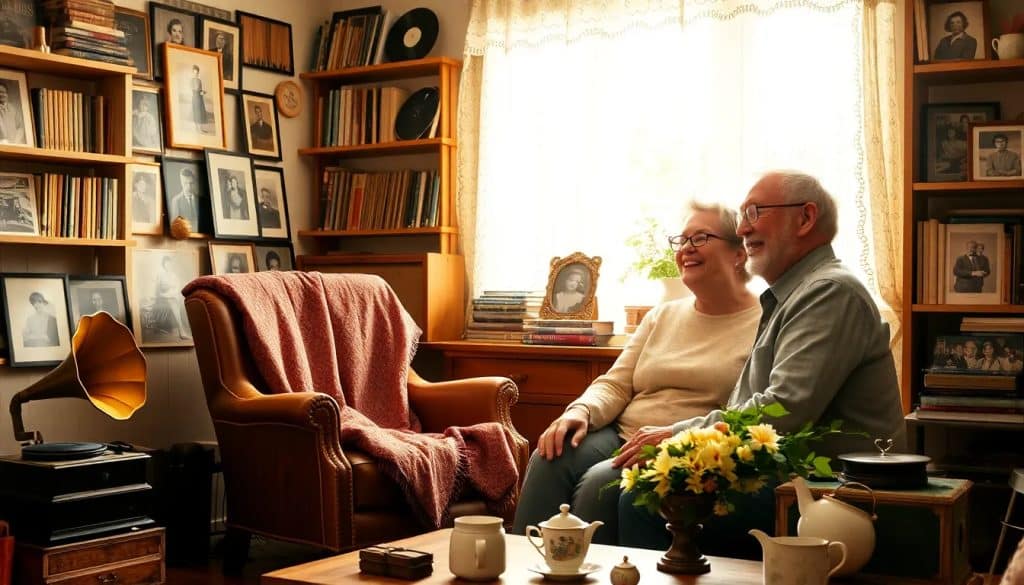Gerontophilia, or the attraction to older individuals, has sparked curiosity and controversy alike. This phenomenon not only challenges societal norms but also highlights the inherent beauty of relationships with age differences. In this article, we will explore the various dimensions of gerontophilia, including its benefits and the societal perceptions that surround it.
Understanding gerontophilia is essential for appreciating its potential emotional rewards and the unique qualities that older partners may offer. With a focus on the 16 reasons vintage is good – gerontophilia explained, we delve into this intriguing topic.

Why is gerontophilia considered a taboo?
Gerontophilia often exists within the shadows of societal acceptance due to its classification as a paraphilia. This categorization can lead to misunderstandings about the nature of these attractions. Many people perceive it as socially unacceptable, associating it with negative stereotypes.
Moreover, cultural narratives often portray age differences in relationships as exploitative, leading to a stigma surrounding gerontophilia. Such perceptions may overshadow the genuine connections that can exist between partners of different ages.
It is vital to recognize that the taboo surrounding gerontophilia stems not solely from the attraction itself but from broader societal fears about aging and sexuality. Open discussions about these topics can help dismantle preconceived notions and reduce stigma.
What are the emotional benefits of being attracted to older women?
Attraction to older women can provide profound emotional rewards for younger partners. Many find that older women possess a certain level of confidence and self-assuredness that can be incredibly appealing. This confidence often translates into more fulfilling interactions, where both partners feel valued and respected.
Additionally, older women bring a wealth of experience that can enhance emotional intimacy. Their life stories, wisdom, and established perspectives contribute to deeper conversations and connections. As a result, younger partners can learn and grow emotionally.
- Enhanced emotional support and maturity
- Stronger communication and understanding
- Potential for personal growth through shared experiences
Ultimately, the emotional landscape of these relationships can foster a sense of security and happiness, which benefits both partners involved.
How does gerontophilia affect relationships and society?
Gerontophilia has the power to reshape relationships and societal understanding of love and attraction. These relationships often challenge traditional norms, encouraging society to rethink its views on age and compatibility.
Moreover, when relationships with significant age differences are openly accepted, they can contribute to a more inclusive society. Exploring relationships with age differences helps to break down barriers and fosters an environment where love can flourish without judgment.
However, there are challenges that come with societal scrutiny. Couples may face external pressure or prejudice, necessitating strong communication and trust to navigate their unique dynamics.
What are the perceived qualities of older women that attract younger men?
Older women often embody qualities that younger men find irresistible. Their confidence and self-assuredness can be magnetic, providing a sense of stability and security. Many younger men appreciate the emotional maturity that older women tend to exhibit, making interactions more meaningful.
Additionally, older women often possess a refined sense of style and sophistication that can be very attractive. This aesthetic appeal, combined with their life experience, creates a unique allure that younger partners may find difficult to resist.
- Confidence and self-assuredness
- Emotional maturity and stability
- Aesthetic appeal and sophistication
These qualities not only enhance the attractiveness of older women but also contribute to dynamic and fulfilling relationships.
Is there a psychological profile for gerontophilic individuals?
Understanding the psychological profile of gerontophilic individuals is complex. Many researchers suggest that personal experiences and cultural influences play significant roles in shaping these attractions. Factors such as childhood experiences, family dynamics, and societal messages can all contribute to one’s preferences.
Moreover, gerontophilic individuals may exhibit specific personality traits, such as a strong appreciation for maturity and wisdom. This preference can stem from a desire for deeper emotional connections, which older partners often provide.
However, it is important to note that every individual is unique, and generalizations should be made with caution. Further research is necessary to create an accurate psychological understanding of gerontophilia.
What are the misconceptions surrounding gerontophilia?
Numerous misconceptions surround gerontophilia, primarily rooted in societal biases. One common belief is that these relationships are inherently exploitative, which isn’t necessarily the case. Many gerontophilic couples share mutual feelings of love and respect, emphasizing equality in their partnerships.
Another misconception is that individuals attracted to older partners are emotionally immature or have unresolved issues from their past. In reality, many people in age-gap relationships are well-adjusted individuals seeking genuine connections.
Understanding these misconceptions is crucial for fostering a more inclusive discourse about gerontophilia. By addressing and dispelling myths, we can pave the way for healthier conversations about love and attraction.
How has gerontophilia evolved over time in cultural contexts?
Gerontophilia’s perception has evolved significantly throughout various cultural contexts. In some societies, relationships with age differences were once celebrated, while in others, they became stigmatized. Historical narratives often reflect changing attitudes towards aging and sexuality.
In contemporary culture, the acceptance of gerontophilia has increased, driven by broader discussions about love, attraction, and gender dynamics. The media often portrays age-gap relationships in a more favorable light, illustrating their potential for happiness and stability.
As societal norms continue to evolve, gerontophilia may increasingly be viewed as a valid and enriching relationship choice, emphasizing the need for ongoing dialogue surrounding this topic.
Related questions about gerontophilia
What is an example of gerontophilia?
An example of gerontophilia can be seen in relationships where a younger individual expresses a romantic interest in significantly older partners. This attraction could be driven by the appreciation of qualities like experience, confidence, and emotional maturity.
Such relationships can take various forms, from casual dating to long-term partnerships. Regardless of the context, they often defy societal norms and challenge conventional understandings of love and attraction.
What do you call a person who is attracted to older men?
A person attracted to older men may be referred to as a gerontophile. This term specifically denotes an individual who finds older partners appealing. It is essential to acknowledge that this attraction is based on personal preferences and can be influenced by various factors, including emotional maturity and life experiences.
What is the meaning of gerontophilia?
Gerontophilia refers to a primary sexual attraction to older individuals. While often misunderstood, it encompasses a wide range of relationships that challenge traditional norms about age and love. This term highlights the need to discuss openly the complexities surrounding attraction and relationships between individuals of different ages.
What causes attraction to older people?
The attraction to older people can stem from several factors, including psychological, emotional, and cultural influences. Many individuals find maturity, wisdom, and life experience appealing, leading to deeper emotional connections.
In some cases, early life experiences may shape an individual’s preferences, leading them to seek partners with attributes commonly associated with older individuals. Ultimately, this attraction is multifaceted and can vary significantly from person to person.










